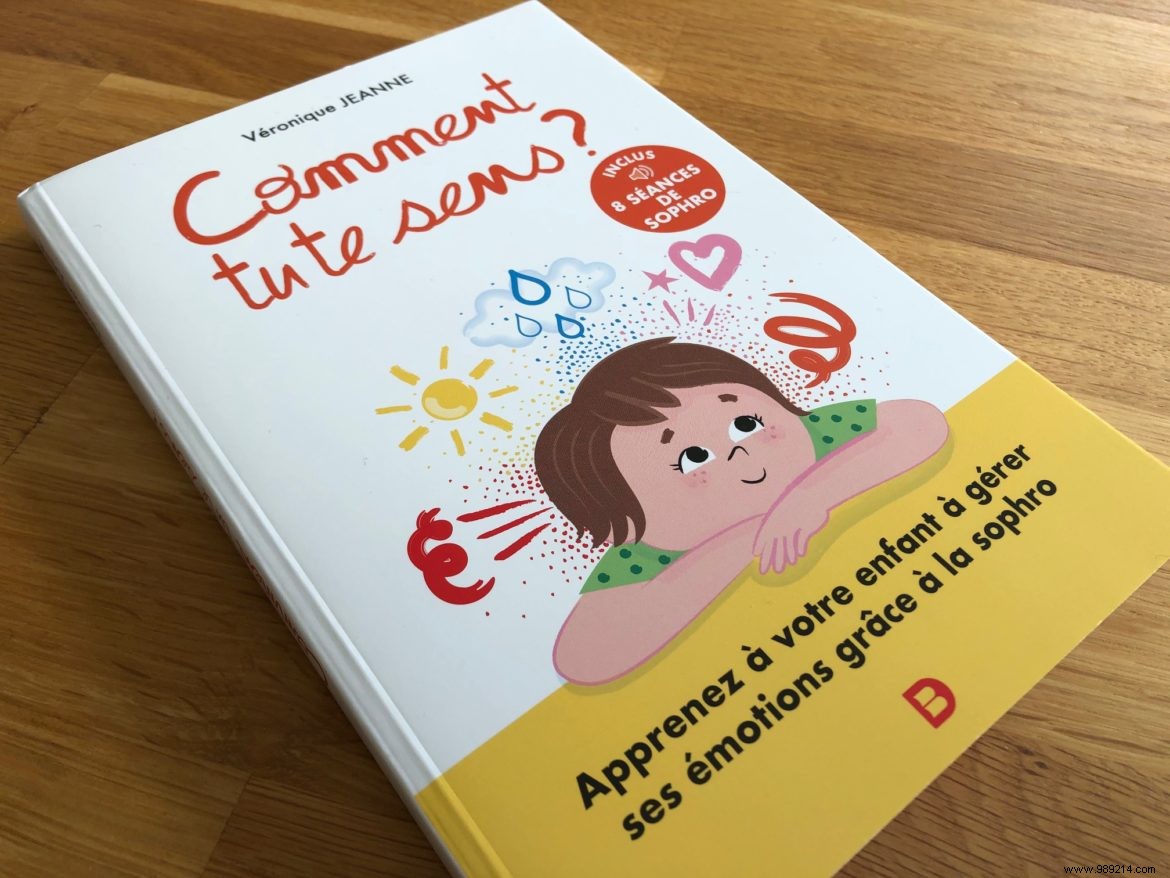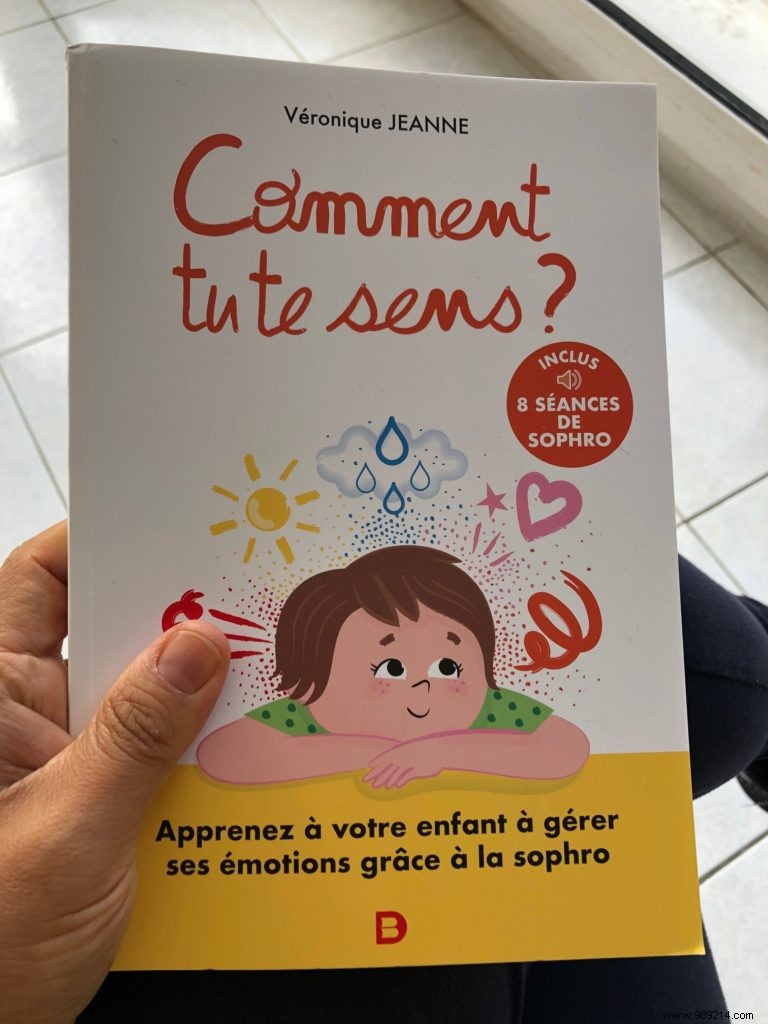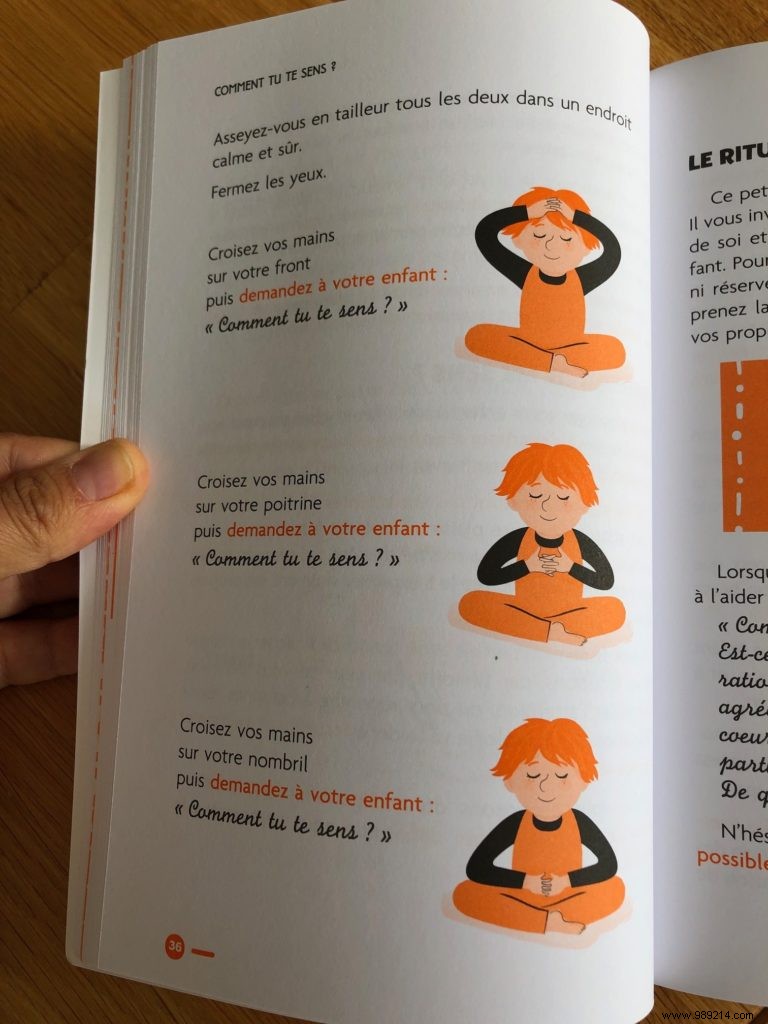
Children are full of energy, it is well known. Ours are no exception to the rule, quite the contrary! Two boys three years apart, and characters that sometimes seem incompatible, or at least that quickly sparks.
Contents 1 Sophrology 2 Calm, voluntary, available 3 The main emotions 4 Sophrology exercises 5 Our opinion on the bookWe would therefore like to introduce into our daily lives a small dose of sophrology, meditation, yoga or any other technique to better channel them. The goal is to help them control their emotions, without repressing them.
Among our readings on the subject, the book “How do you feel” by Véronique Jeanne challenged us. This is a book / guide to put sophrology into practice in a simple and child-friendly way.
The premise of the book is that emotions are learned, and the book is there to help children recognize their emotions, name them, understand them and tame them.

Sophrology is a personal development tool to develop serenity and well-being. Sophrology can help children focus on the present moment, and improve their self-confidence.
The sophrology activities for children, proposed in this book, call upon imagination and play to be easily implemented.
To practice sophrology with children, you have to choose the right moment! A time when the child is calm, voluntary (it is better to present the activity as a game), and available (the child and you must have time reserved without being disturbed). It takes calm and patience for a session to be beneficial.
According to the author, there are only 4 primary emotions (each illustrated by a beautiful visual in the book):
The book includes 8 sophrology sessions (a QR code to scan provides access to the audio file online). Exercises are proposed according to the emotions to be tamed:
Each theme being worked with body games and an imaginary journey.

Sophrology can seem difficult to approach with children. Just like meditation. Since children are above all interested in games, it was essential that a book on the subject present exercises presented from this angle. The book is well designed, the first part clearly explains what sophrology is and what it can bring to parents and children, as a tool for personal development.
It is always difficult to channel children and get them to adhere to this type of approach, but the game is worth the effort.
We haven't been able to test all the exercises yet, but it's a book to keep on hand if only to keep in mind the patterns of understanding the 4 primary emotions.